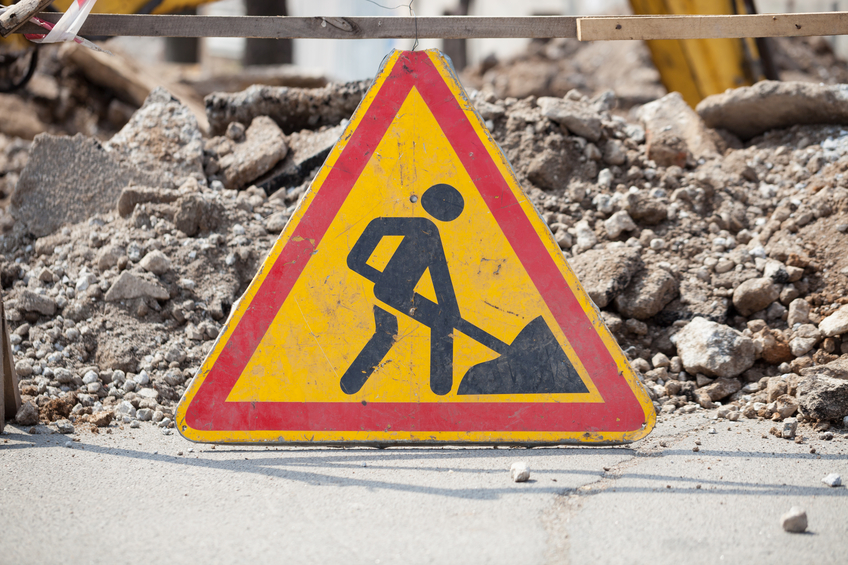Mississippi Construction Safety and Ethics 15 PDH Discount Package 2
Ground-Fault Protection on Construction Sites (E01-001)
Operational Safety on Airports During Construction (C07-016)
Ethics in Professional Practice (LE2-007)

This online engineering PDH course explains why certain chemicals are considered hazardous to personnel working in facilities containing such chemicals. It also provides an overview of handling chemicals as well as provides resources of information about these chemicals.
The various chemicals found in our industry as well as the home are useful when properly applied. If the user is uninformed about correct applications, storage, and potential hazards, these chemicals can become threats to our safety.
This 5 PDH online course is applicable to chemical and environmental engineers, design and construction personnel, technical staff and facility operators who are interested in gaining a better understanding of the hazards of chemicals and gases.
This PE continuing education course is intended to provide you with the following specific knowledge and skills:
- Corrosives
- Toxic compounds
- Compressed gases
- Flammable and combustible liquids
In this professional engineering CEU course, you need to review Module 5, "Hazards of Chemicals and Gases" of the Department of Energy Publication DOE-HDBK-1015/1-93, "Chemistry".
Upon successful completion of the quiz, print your Certificate of Completion instantly. (Note: if you are paying by check or money order, you will be able to print it after we receive your payment.) For your convenience, we will also email it to you. Please note that you can log in to your account at any time to access and print your Certificate of Completion.

This online engineering PDH course provides OSHA's electrical requirements for ground fault circuit interrupters to protect workers against electrical hazards.
With the wide use of portable tools on construction sites, the use of flexible cords often becomes necessary. Hazards are created when cords, cord connectors, receptacles, and cord- and plug-connected equipment are improperly used and maintained. Shocks, burns or fire-related fatalities resulting from humans exposed to non-grounded equipment significantly contribute to the overall number of fatalities in the construction workplace.
OSHA recognizes that non-grounded equipment present serious hazards to all workers involved. Therefore, OSHA developed the Electrical Standard that contains the requirements for ground fault circuit interrupters (GFCIs) to protect workers against 120-volt electrical hazards on the construction site.
This 1 PDH online course is applicable to employers/business owners, engineers, managers, electricians, construction workers and any other personnel working with or around energized equipment that require grounding.
This PE continuing education course is intended to provide you with the following specific knowledge and skills:
- What is a GFCI
- What are some other ways to prevent electrical injury
- How can employers protect their workers
- What is the assured equipment grounding conductor program
In this professional engineering CEU course, you need to review OSHA 3007, "Ground-Fault Protection on Construction Sites".
Upon successful completion of the quiz, print your Certificate of Completion instantly. (Note: if you are paying by check or money order, you will be able to print it after we receive your payment.) For your convenience, we will also email it to you. Please note that you can log in to your account at any time to access and print your Certificate of Completion.

This online engineering PDH course discusses the key areas for maintaining safety during construction at an airport. It presents details on how to maintain a functioning airport during construction, how to keep construction zones safe, and when to have specific zones open or close during construction.
Safety at construction zones is paramount, and this is even more so at airports where multiple stakeholders are involved in the construction process, including but not limited to the FAA, airport operators, contractors, airport users, and military personnel (at military airports).
This 7 PDH online course is applicable to architects, construction managers, safety, civil, electrical, mechanical, and industrial engineers as well as others interested in learning more about how construction at an airport can be performed safely.
This PE continuing education course is intended to provide you with the following specific knowledge and skills:
- Understanding why maintaining safety at an airport during construction is important
- Learning how to best keep all involved parties and stakeholders safe
- Understanding what is involved in creating a construction safety and phasing plan (CSPP)
- Familiarizing with the guidelines on how to create a construction safety and phasing plan (CSPP)
Upon successful completion of the quiz, print your Certificate of Completion instantly. (Note: if you are paying by check or money order, you will be able to print it after we receive your payment.) For your convenience, we will also email it to you. Please note that you can log in to your account at any time to access and print your Certificate of Completion.

In this online engineering PDH course, background on the philosophical models that guide ethical behavior is discussed and then applied to specific situations in engineering codes of ethics. This course is based on the American Society of Mechanical Engineers Professional Practice Curriculum, Volume 8, Section: Engineering Ethics.
Many engineering organizations have drafted codes of ethics to which their members are required to commit. Generally, these codes are quite similar and are based on a few fundamental principles which provide guidance to professional engineers in common situations. Nevertheless, there are many difficult or ambiguous situations in which the best ethical solution is difficult to determine.
This 2 PDH online course is intended primarily for engineers seeking to learn ethical principles and how to apply them to their professional practice.
This PE continuing education course is intended to provide you with the following specific knowledge and skills:
-
Determining ethical behavior using several philosophical models
-
Evaluating a practical situation in terms of a professional code of ethics
-
Identifying situations that represent conflicts of interest and formulate a proper response
-
Applying the standards of professional ethics in technical communication
-
Recognizing environmental impacts of engineering work
-
Considering principles of sustainable development in the performance of professional duties
In this professional engineering CEU course, you need to review "Ethics in Professional Practice" published by the American Society of Mechanical Engineers (ASME). (This course document is reproduced by permission of the ASME (www.asme.org). You may also download from or view this course document on the ASME's website by clicking on Ethics in Professional Practice).
Once you complete your course review, you need to take a multiple-choice quiz consisting of fifteen (15) questions to earn 2 PDH credit. The quiz will be based on this ASME publication.
Upon successful completion of the quiz, print your Certificate of Completion instantly. (Note: if you are paying by check or money order, you will be able to print it after we receive your payment.) For your convenience, we will also email it to you. Please note that you can log in to your account at any time to access and print your Certificate of Completion.